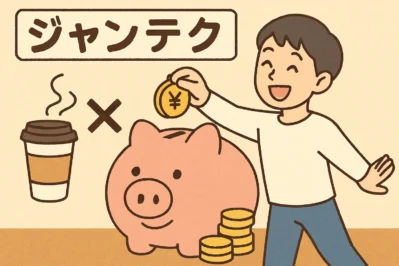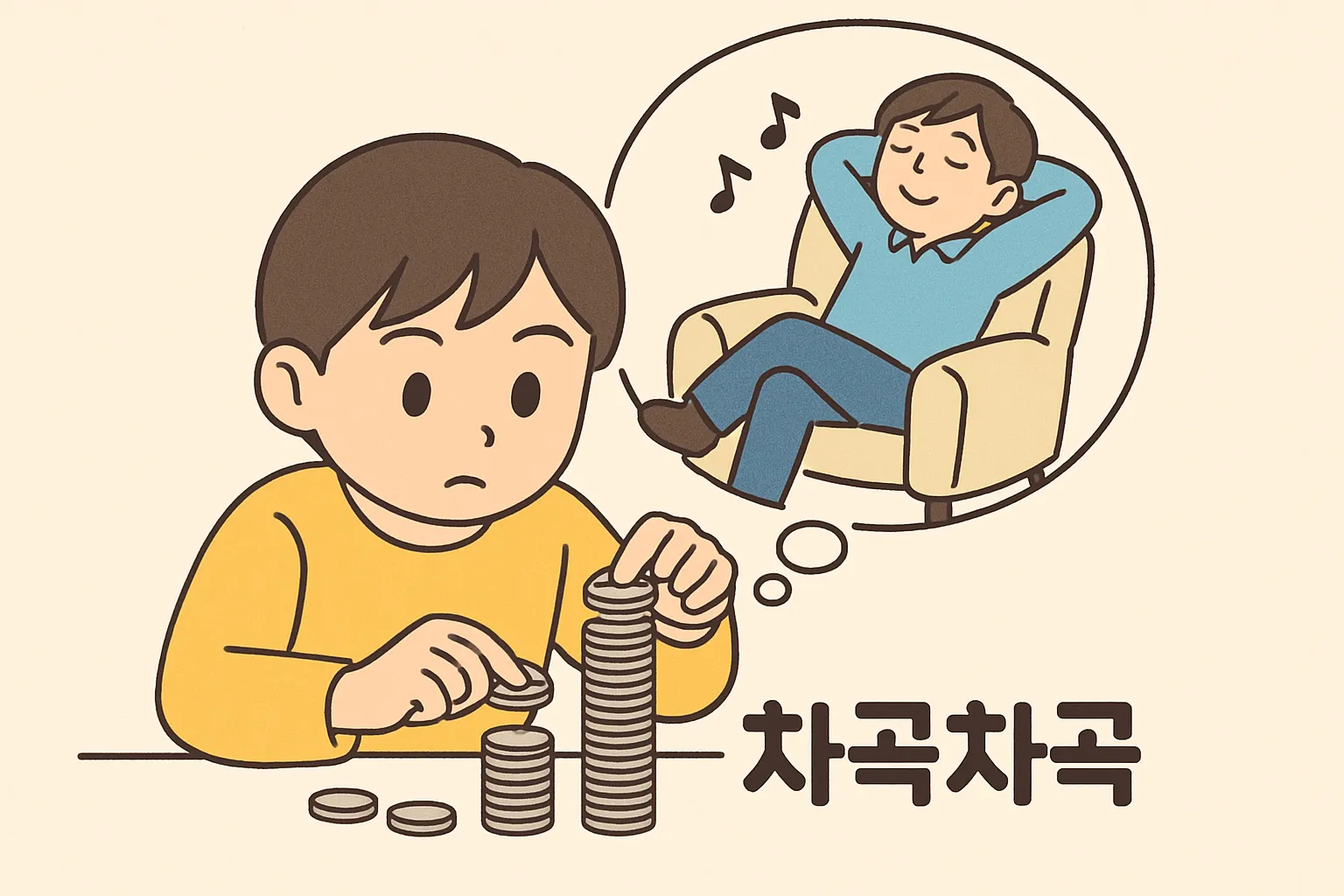From Coffee Addict to Savings Pro: Master Korean “Jjan-tech”!
Hello! Welcome to [Maeil Hangul], here to upgrade your Korean skills!
Do you have a goal you want to achieve? Maybe save money for a trip to Korea? Today, we’re going to learn how to talk about setting goals in Korean, specifically about saving money. This is super useful for talking about your New Year’s resolutions or future plans with Korean friends.
Lately in Korea, there’s a huge trend called ‘짠테크’ (Jjan-tech) and ‘무지출 챌린지’ (No-Spend Challenge). Young people are finding fun and creative ways to save money, and a very popular first step is cutting down on daily coffee expenses! Let’s learn the essential Korean phrases to join this trend!
Core Expressions You Need to Know
Here are three key expressions to talk about your saving goals.
1. 아끼다 (akkida)
* Pronunciation [Romanized]: a-kki-da
* English Meaning: to save (on something), to be frugal with, to conserve
* Detailed Explanation: This verb means to use something sparingly to make it last longer or to save money. It’s not about saving money in a bank, but about reducing your spending on specific things like electricity (전기를 아끼다), water (물을 아끼다), or in our case, coffee money (커피 값을 아끼다). It’s a very common word used in everyday conversation.
2. 돈을 모으다 (don-eul mo-eu-da)
* Pronunciation [Romanized]: don-eul mo-eu-da
* English Meaning: to save money, to collect money
* Detailed Explanation: This is the phrase you use when you’re talking about putting money aside for a bigger goal, like saving up for a vacation or a new laptop. 돈 means “money,” and 모으다 means “to gather” or “to collect.” So, you are literally “gathering money.”
3. -(으)려고 하다 (-(eu)ryeogo hada)
* Pronunciation [Romanized]: -(eu)ryeo-go ha-da
* English Meaning: to intend to, to plan to
* Detailed Explanation: This is a grammar pattern you attach to a verb stem to express your intention or plan. It’s the perfect way to talk about your goals!
* If the verb stem ends in a vowel or ‘ㄹ’ (like 가다 -> 가려고 하다): you add -려고 하다.
* If the verb stem ends in a consonant (like 먹다 -> 먹으려고 하다): you add -으려고 하다.
Example Dialogue
Let’s see how these expressions are used in a real conversation between two friends, Minjun and Sora.
A: 민준 (Minjun)
소라 씨, 주말에 뭐 해요? 영화 보러 갈래요?
(Sora, what are you doing this weekend? Do you want to go see a movie?)
B: 소라 (Sora)
미안해요. 저는 요즘 돈을 모으려고 해요. 그래서 영화 보는 대신에 집에서 책을 읽을 거예요.
(I’m sorry. I plan to save money these days. So instead of watching a movie, I’m going to read a book at home.)
A: 민준 (Minjun)
아, 정말요? 왜요? 특별한 계획 있어요?
(Oh, really? Why? Do you have a special plan?)
B: 소라 (Sora)
네! 한국 여행 가려고요! 그래서 커피 값도 아끼고 있어요. ‘무지출 챌린지’ 중이에요!
(Yes! I plan to go on a trip to Korea! That’s why I’m also saving on coffee money. I’m doing a ‘No-Spend Challenge’!)
Culture Tip & Trend Deep Dive
You heard Sora mention ‘짠테크’ (Jjan-tech) in our introduction. Let’s dive deeper!
- What is ‘짠테크’ (Jjan-tech)?
The word ‘짠 (jjan)’ comes from ‘짜다 (jjada),’ which means ‘salty.’ As a slang term, it means being ‘stingy’ or ‘frugal.’ ‘테크 (tech)’ is from the English word ‘technology.’ So, Jjan-tech means using smart methods and technology (like budgeting apps or finding the best deals online) to be frugal and save money. It’s considered a cool and wise lifestyle, not something to be embarrassed about! -
How do Koreans use this?
The Korean Z generation loves sharing their Jjan-tech life and ‘무지출 챌린지’ (No-Spend Challenge) results on social media like Instagram and in YouTube vlogs. They post pictures of their homemade lunchboxes or coffee with hashtags like #짠테크 or #무지출챌린지. If you use these phrases, you’ll sound just like a trendy local in Korea!
Let’s Practice!
Great job today! You learned how to talk about your saving goals like a pro. Remember 아끼다 (to save on something), 돈을 모으다 (to save money), and the grammar pattern -(으)려고 하다 (to plan to).
Now, it’s your turn to practice!
- Fill in the blank:
- “I plan to save money for a new phone.”
- 저는 새 핸드폰을 사려고 돈을 _________ 해요.
- (Answer: 모으려고)
- Make your own sentence!
- What do you want to save (
아끼다) money on? Try to make a sentence! - Example: 저는 택시비를 아끼려고 해요. (I plan to save on taxi fares.)
- What do you want to save (
What are your saving goals? Leave a comment below using the expressions you learned today! We’d love to read them






